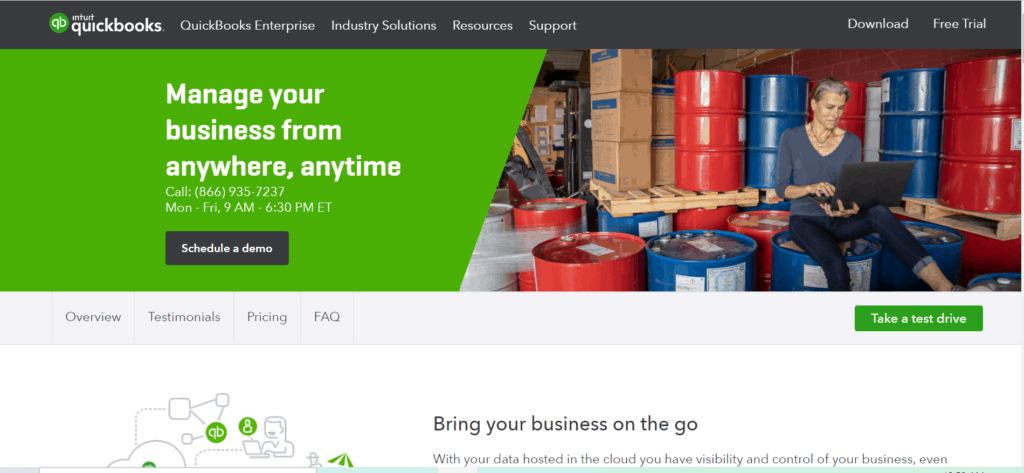
10 Sep Choose the Best Cloud Hosting Providers 2021
Recently, small start-ups and big banner businesses have started shifting towards cloud hosting to meet up to their daily needs. Their servers propose multiple functionalities. They can be used for application development, web hosting, remotely accessible desktop work environments, etc.
So, it proves to be a great option in terms of feasibility and performance. Let us know more about this healthy and money-saving option to make a deal with certainty in mind.
Table of Contents
What is Cloud Hosting?
Cloud hosting is a network and server infrastructure which uses specific software to divide a parent single physical server into multiple virtual servers. The devices that bifurcate these servers are called virtual machines.
Key Features of cloud hosting
- Resources are scalable and scale to user needs.
- Cloud hosting supports both SQL (including MySQL) or NoSQL databases.
- Solutions and applications are deployed on a cloud network rather than a single on-premises server.
- You only have to pay for the resources you are using.
- Solutions are controlled and automated using APIs, mobile apps, and web portals.
Types of cloud hosting
Public Cloud
The user configures the public cloud through a restful API or/and a control panel. A cloud server can be conveniently made within seconds. It can easily be scaled and can be deleted as per your wish and desire. You are accountable to pay only for the resources you use within a public cloud server. There are some one-click installation applications for commonly used server configurations like LEMP, Node.js, October CMS, LAMP, WordPress, cPanel/WHM, and more. Theses servers are also easily scalable. This allows the users to configure and maintain their setup without requesting any help from outside for minimal minor changes or required updates. A public cloud can be easily configured for forex trading, file sharing and storage, cloud databases, file backups, e-commerce, and much more.
Private Cloud
Private virtualization or otherwise known as private cloud provides you the same facilities and features as a public cloud offers with the additional security of dedicated hardware. There is a specific team assigned specifically to work with you to custom-design a private cloud environment that suits your company’s needs and adds to its assets. You can install any supported operating system while having a private cloud. With a private cloud, you get redundant storage, networking, and power. You can also set custom replication clusters. This will help in reducing any downtime on your website. By replication, each of the servers become synchronized on two different physical hosts. If one goes down, it falls-over to the other machine. A private cloud is ideal for websites that deal with sensitive data and can not afford any downtime.
Hybrid Cloud
Hybrid cloud gives you the advantages of public cloud and private cloud combined. For any data worth extreme secrecy or critical workload, you can deploy a custom private cloud environment. Whereas, for basic development environments with less critical workloads like customer-facing web sites. This type of hybrid environment is useful when combined with container technologies like Docker. The less critical applications can be updated often and can get excellent global reliability across data centers globally. This all can be done while keeping your confidential data secluded in another private cloud.
Managed Cloud
A managed cloud is initially set up by a team of technicians and handed to you once the basic configuration and setup is completed. The managed cloud offers configurations with intrusion detection systems and firewalls for better security. These preventive and safety measures provide you with peace of mind with an optimally configured server environment. If you desire a more complex configuration, do not have a severe amount of time to devote to your hosting, or you do not have access or knowledge about technical resources, then managed cloud hosting is the ideal form of hosting for your company’s website.
Benefits of cloud hosting
Scaling and flexibility
Basic VPS devices can not re-prioritize the server resources dynamically or resize the server in between on demand. Cloud hosting offers you a pay-as-you-go pricing model with nill minimum fee. You only spend your money on the resources you require and utilize without any complex licensing agreements or long-term contacts. You can use the server for as long as you need, delete whenever you want to, and only pay for the time you used.
Memory
Cloud hosting provides dedicated memory for every virtual machine. This prevents the resources from being engaged and tied up to another user on the server while you require them. Most of the cloud hosting environment run on ECC RAM that detects the internal data corruption to prioritize system stability and data accuracy.
IPs On-Demand
The cloud servers come with one static public IP address. You have the leverage to get extra IPs on demand. This means you get an IP to yourself, and you can also attach multiple additional IPs to the server for hosting multiple websites or network routing. Some cloud hosting companies might charge you for private IPs while some provide you private network traffic free of cost.
Redundancy
Most of the cloud hosting service providers are hosted in top-notch data centers and utilize the fully redundant infrastructure. This means all the cloud and new deployments have dual-power feeds, multiple redundant network uplinks, redundant infrastructure components, and generator backup. They also have 24 hours in-person staffing and redundant HVAC system. This helps in delivering almost 100% uptime to the cloud hosting users. The cloud servers offer backups on either a weekly or daily basis. This means you can quickly restore files when accidentally deleted, or you need to revert an update to your code or server.
CPU
The dedication of CPU cycles plays an essential role in a dedicated cloud infrastructure. A cloud server provides dedicated CPU cycles, utilizes quality CPUs, and does not overlock them. You only need to pay for the CPU cycles you use. You can also burst to use additional CPU cycles when not in use.
Storage
Most of the cloud servers are powered by enterprise-grade solid-state drives (SSDs), providing blazing fast performance for your applications and servers. SSD provides write and read speeds of 4x-5x the speeds of hard drives. If you require large storage space, then cloud storage is the one for you. They put more emphasis on the storage space rather than RAM and CPU.
Location
VPS hosting has only one location to choose from. Whereas, a cloud hosting ahs multiple data centers in some of the leading and developed countries like the united states of America, Europe, and Canada. For optimum business and personal use, you can use and choose different data centers for reduced latency times, increased redundancies, and separated distribution.
Support
Cloud servers are there for you with their commendable 24/7/365 strong customer support via chat, phone, and email. All the data centers, hardware, and networks are monitored. Enormous article on cloud community on frequently asked questions is often put upon the world wide web.
Demerits of cloud hosting
Risk of data confidentiality
There is always a slight risk that the user data can also be accessible to other people. So if the data security is not healthy, some of your confidential data might end up in another’s hand.
The level of security
Security and secrecy are among the most questionable things in cloud hosting. It would be best if you enquired well about a provider’s authenticity as you can not hold then accountable later on.
Vulnerable to attacks
The cloud hosting system works online; this means the server data gets exposed to a wide range. This means the chances of attacks on stored data and activities are reasonably high.
Technical Problem
There is no surety that the technical assistance would be available to you 24/7. You might also have to pay extra to get the necessary means of support.
Dependency on the internet connection
The internet is the only way to cloud hosting. When your interconnection is down or weak, you will have trouble to work on and with your website.
Compliance
It means the risk of a level compliance deviation from the provider against the regulations that are applied by the user.
Data Mobility
It is the possibility of sharing and retrieving data between cloud servers. It is often said that a cloud server lacks this feature.
Low Connection
The quality of cloud hosting servers is one of the most important considerations before you choose a cloud hosting service provider. If the panorama is not useful or the server is down, then you will be severely harmed because of low server quality.
Parameters to consider while choosing a cloud hosting provider
Security
While choosing a cloud hosting service provider, a client should look out a provider that contains operational/physical, network and system, and application and data security options.
Sensitive Data
If you want to deal with data of extreme secrecy and confidentiality, then you must opt for providers that separate the data at the hardware level by using dedicated servers or other options.
Support
Look out for cloud hosting providers that often offer tools and outstanding services to help in the management of a cloud-hosted environment.
Performance
Latency can be a significant issue at times. It would be best if you considered choosing a cloud hosting service provider that has sturdy and reliable internet connections.
Cloud Hosting vs. Web Hosting
Cloud Hosting |
Web Hosting |
| Cloud hosting servers are mainly used to host in the cloud storage. | Web hosting is a service that is linked to internet hosting. |
| The scalability of cloud hosting is very convenient. | The scalability of web hosting is way less than cloud hosting. |
| There is a fair amount of reliability in cloud hosting. You can switch easily if one server gets down. | In web hosting, the reliability is significantly less. |
| In cloud hosting, numerous servers are working on the same platform. | There is either a fixed server or a single server in web hosting. |
| Cloud Hosting is dependent on usage. | Web hosting is dependent on the package and the services. |
| It is known for its dynamic, virtual, and demand-dependent scalable infrastructure. | The service providers provide its customers with the computers via which the web sites data can be stored. |
Best Cloud Hosting Service Providers
Quickbooks Cloud Hosting
Quickbooks cloud hosting provides an utterly functional desktop version of QuickBooks on the cloud in a robust and well secure environment. Cloud Hosting for QuickBooks Desktop facilitates multi-user access for CPA through Cloud based Desktop. It enables accountants, CPAs, and business owners to reach out to their accounting files at any time, from anywhere, and on any device. You do not need to transfer files back and forth via emails.
Some of its convincing features are:
- Security
- 100 Day backup
- Fully- featured QB desktop
- Scalability
- Cross-device Compatibility
- Always-on support
Cloudflare Cloud Hosting
Cloudflare cloud hosting makes it possible for databases and software to run on remote servers accessible over the internet. It offers numerous advantages over traditional infrastructure. These advantages include cost savings, flexibility, and scalability.
Some of the features are:
- DDoS learning center
- CDN learning center
- SSL learning center
- Network layer learning center
- DNS learning center
- Security learning center
- Access management learning center
Soundcloud Podcast Hosting
Soundcloud operates on a global level. It enables its users to upload up to 12 hours of audio material every minute to its platform. The audio files must be stored and transcoded in multiple formats. This company also analyzes and logs billions of events every day. It currently holds up to 2 PB of data.
Some of its exciting features are:
- Secure long-term storage
- AWS usage
- Super scalable
- Easy build-up
- High Security
Ace Cloud Hosting
Ace cloud hosting has won the USA’s favorite Award in the category of application hosting. It provides its hosting services for tax software, managed server, accounting apps, office suits, and private servers. It guarantees a 99.9% uptime. Ace cloud hosting also offers a 24/7/365 strong customer support along with 100-days data backup.
Some exciting features are:
- Excellent support
- Guaranteed uptime
- Money-back guarantee
- reliable
- Scalable
Conclusion
So, this was pretty much everything about cloud hosting. Its type, key features, merits, and demerits have been briefly explained to you. We have also put forward our suggestions pf the providers that can give you the desired result. We think opting for cloud hosting can be an excellent choice for start-ups like yours. So please put your trust with us and get associated with the right cloud hosting service provider!
What are the major benefits of cloud hosting over traditional hosting?
Cloud hosting offers greater scalability, flexibility, security, cost-effectiveness, and unlimited storage.
How fast can a cloud server be deployed?
It usually takes 45-60 minutes.
Can you customize your service plans?
Of course, cloud hosting is open to feasible changes as per your needs and desires.
Can you use only limited amount of resources from one package?
Yes, you can. You will also be charged only the basis and amount of resources you use.







Kevin
Posted at 19:50h, 15 SeptemberI use Quickbooks for some of my sites and do not have any complaints!
You did a great job explaining Cloud hosting and I learned several things in this very comprehensive article.
sportsgeeks
Posted at 06:10h, 25 SeptemberSurely buy the suggested hosting